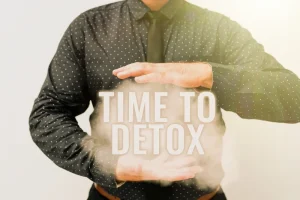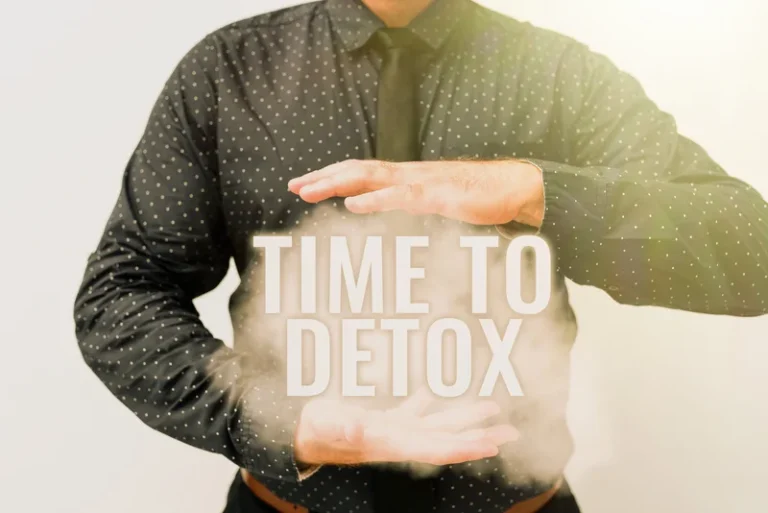
When you quit drinking, you should also seek medical advice about any alcohol withdrawal symptoms you experience. This includes early symptoms of alcohol withdrawal, such as mild tremors and anxiety. The reason for this is that alcohol withdrawal symptoms can quickly snowball and worsen.
Severe symptoms of alcohol withdrawal

If you are tapering off of alcohol, the time it takes depends entirely on how long the taper is and how well you adhere to it. One of the reasons that medical professionals tend to avoid tapers is that they can be difficult to follow and may be more likely to be unsuccessful than faster options. Slowly decreasing the amount you drink over time can spare your body from withdrawal symptoms. This is because drinking heavily over a long period can cause your body to become physically dependent on alcohol.
How To Detox from Alcohol Safely
After two weeks, continue to listen to your body, adding more alcohol-free days and seeking support as needed. Gradual reduction can help minimize withdrawal symptoms and make the process more manageable. Abrupt cessation, especially for regular drinkers, might lead to severe withdrawal symptoms that could be harmful.
Scan the QR code to get started!
This means that some withdrawal symptoms, like anxiety, irritability, and mood swings, may be less severe. Some people find that their anxiety or mood swings will improve as they cut back. Some alcohol withdrawal symptoms can be so severe that they can lead to death. Contact a medical professional immediately if you notice any withdrawal symptoms. However, if you don’t taper properly, you may experience withdrawal symptoms, especially if you have severe alcoholism. It’s common to experience emotional ups and downs during the weaning process.
Alcohol Tapering Strategies
- For this reason, you should not suddenly quit drinking without talking to your doctor.
- Once it begins to leave your body, early symptoms of withdrawal begin.
- This is why it’s always best to find some form of long-term support in sobriety.
- Overstimulation in your nervous system can affect important unconscious functions like your heart rate, blood pressure, and electrical impulses.
- If you drink alcohol and are thinking about quitting, it is important to make sure you do so safely.
- Some folks are just super sensitive and they’ll experience side effects no matter what antidepressant they’re on, Dr. Gold adds.
Seltzers, sparkling water, or mocktails can provide the sensation of having a drink in your hand without the alcohol. These alternatives can be a psychological aid, making it easier to stick to your tapering plan. Tapering off alcohol is a step in the right direction, but there’s more to the story.
Here to Help You Safely Stop Drinking
- This method can lead to withdrawal symptoms, especially if you’ve been a heavy drinker.
- These alternatives can be a psychological aid, making it easier to stick to your tapering plan.
- You don’t have to let the fear of alcohol withdrawal stop you from cutting back or quitting.
- Eventually, after a period of time, you will have tapered down to zero drinks.
- Tracking also allows you to notice any patterns that may lead to increased drinking, such as stress or social situations.
- Understanding and preparing for these difficulties can greatly enhance the chances of successful recovery.
Over time, you can decrease the alcoholic drinks while increasing the non-alcoholic ones while still following the same behaviors you were used to. When you drink heavily and frequently, your brain compensates for the suppressive effects of alcohol by becoming more hyperactive. This balances out the effects of alcohol and makes your brain function more as it should while you have alcohol in your bloodstream.

Mental and Physical Impacts of Weaning off Alcohol

However, weaning off alcohol isn’t always necessary for people who want to cut back or stop drinking. The most significant factor is whether or not you’ve become chemically dependent. When you taper your alcohol, you slowly reduce your alcohol intake over time. By gradually drinking less instead of stopping cold turkey, your body has a chance to adapt to smaller and less frequent drinks. Whatever method you use to taper down, your plan should also be approved and monitored by a healthcare profession to ensure your safety. Working with a physician on the Monument platform can help determine what timeline will work for you based on your past drinking habits and risk of withdrawal.

- One of the reasons that medical professionals tend to avoid tapers is that they can be difficult to follow and may be more likely to be unsuccessful than faster options.
- Although, you’ll need support if you want to successfully and safely taper at home.
- Because alcohol is a central nervous system depressant, quitting drinking can cause your body to have too much of an excitatory substance called glutamate as it tries to rebalance.
If you have trouble controlling how much you drink or experience significant alcohol cravings, you may need professional help instead of trying to taper your alcohol use at home. However, when you quit drinking abruptly, your body’s chemical balance will be thrown off suddenly, leading to uncomfortable side effects. You will have an imbalance of excitatory and inhibitory chemicals in your nervous system.
When an individual has developed a substance use disorder or dependence on alcohol, stopping its use outright can seem virtually impossible. On top of this, quitting immediately — or “cold turkey” as many users and professionals call it — can be dangerous. Withdrawal symptoms are generally uncomfortable to deal with, but they can be fatal. To avoid or can you taper off alcohol reduce the impact of the withdrawal symptoms, people struggling with alcohol may choose to progressively taper off alcohol rather than quit abruptly.
Luckily, this nationwide issue has resources available to help you heal. If you suddenly quit drinking, your brain can start to make more of an excitatory substance called glutamate. This excessive glutamate level can lead to alcohol withdrawal symptoms, which can be dangerous. Generally speaking, alcohol home detox is neither the most effective nor the safest method of quitting alcohol. However, it may be suitable for someone with a lower risk of experiencing alcohol withdrawal, or a person who has access to medical professionals at home. If you properly taper your alcohol use, you’re less likely to experience alcohol withdrawal symptoms.
